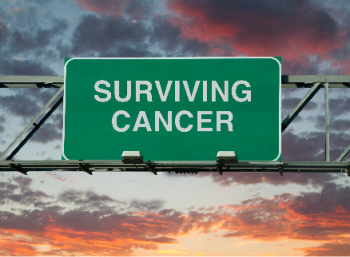After Childhood Cancer, Sexual Dysfunction More Common in Women

When female pediatric cancer survivors reach adulthood, they are more likely to have sexual problems than their male counterparts, according to new research in the Journal of Sexual Medicine.
Cancer treatment can affect sexuality in several ways. For example, surgery and radiation can damage nerves associated with sexual responses, like erections and vaginal lubrication.
While more pediatric cancer patients are surviving into adulthood now, there has been little research on their sexual function, and previous studies have had mixed results.
For this study, scientists wanted to learn about the rates of sexual dysfunction among pediatric cancer survivors based on standardized questionnaires. They asked 28 men and 29 women to participate in an anonymous online survey. Just under three quarters of the group was sexually active.
At the time of the study, the participants’ average age was 24 years, and their average age at cancer diagnosis was 9 years. The most common forms of cancer were leukemia and lymphoma.
The sexually-active women completed a questionnaire called the Female Sexual Function Index (FSFI). This tool covers six domains of female sexuality: desire, arousal, vaginal lubrication, orgasm, satisfaction and pain.
Erections of sexually-active men were assessed with the International Index of Erectile Function (IIEF), which provided information about getting and keeping erections, the men’s confidence in doing so, and their satisfaction with intercourse.
Over half the women were coping with sexual problems, especially those who had trouble relaxing during sex. Women whose cancer had been treated with surgery or radiation had poorer FSFI scores for the satisfaction and pain domains. Radiation was also linked to poorer vaginal lubrication.
About a quarter of the men had sexual difficulties, which included premature or delayed ejaculation and low libido.
Why were sexual problems more common for women than for men? The authors posed several explanations. For example, post-traumatic stress and depression are more frequent in female pediatric cancer survivors, and these psychological factors can have a negative influence on sexual function.
“Even among healthy individuals, male sexual problems are thought to be more organic in nature, compared with female sexual problems, which are thought to be more related to psychosocial concerns,” the authors explained.
They added that men tend to seek out sexual encounters more than women do, and this might benefit their sexual function after cancer.
More research on the causes behind the findings is necessary, they said.
In the meantime, they recommended that healthcare providers screen for sexual dysfunction in survivors of childhood cancer.
Resources
The Journal of Sexual Medicine
Greenberg, Daniel R., BA, et al.
“Male and Female Sexual Dysfunction in Pediatric Cancer Survivors”
(Full-text. Published: July 1, 2020)
https://www.jsm.jsexmed.org/article/S1743-6095(20)30650-0/fulltext
You may also be interested in...
Other Popular Articles

What Is the Average Penis Size?
If you have ever wondered how your penis compares to others in terms of size, you are not alone. Many men are curious to know how their penises stack up compared to the average. Unfortunately, general curiosity can sometimes give way to full-on obsession and anxiety about penis size. This can be an unhealthy and often unnecessary fixation, especially because most men who think their penises are too small have perfectly normal-sized penises.

What Is Jelqing, and Does It Actually Work?
The term “jelqing” refers to a set of penis stretching exercises that some believe can make the penis bigger. Although the practice has gained attention and popularity in blogs and internet forums in recent years, there is no scientific evidence that it is an effective way to permanently increase the size of one’s penis. In fact, in some cases, jelqing may actually cause damage to the penis, so it is a good idea to get all the facts before setting off to try it.

What Is Sensate Focus and How Does It Work?
Sensate focus is a technique used to improve intimacy and communication between partners around sex, reduce sexual performance anxiety, and shift away from ingrained, goal-oriented sexual patterns that may not be serving a couple.

Can Sex Reduce Menstrual Cramps?
The SMSNA periodically receives and publishes ‘guest editorials.’ The current article was submitted by Mia Barnes, a freelance writer and researcher who specializes in women's health, wellness, and healthy living. She is the Founder and Editor-in-Chief of Body+Mind Magazine.
Having sex while you experience menstrual cramps is healthy and can provide significant benefits. While it might not be the first activity that comes to mind when your PMS or period cramping begins, many people enjoy sex to reduce menstrual cramps, experience increased pleasure and benefit from other advantages. Learn more about having sex while menstrual cramps are happening and how it can help your body.

How Long Does It Take the Average Man to Ejaculate?
On average, it takes a man between 5 to 7 minutes to orgasm and ejaculate during sexual intercourse.

Can Sex Throw off Your Vaginal pH Balance?
The SMSNA periodically receives and publishes ‘guest editorials.’ The current article was submitted by Mia Barnes, a freelance writer and researcher who specializes in women's health, wellness, and healthy living. She is the Founder and Editor-in-Chief of Body+Mind Magazine.
Your vagina is a pretty powerful organ. It is a pathway for menstrual blood and babies. It also is a main player in sexual intercourse. You might hear about your vagina’s pH and worry that yours is at risk. Here’s what to know about vaginal pH, including the impacts sex could have.
You are prohibited from using or uploading content you accessed through this website into external applications, bots, software, or websites, including those using artificial intelligence technologies and infrastructure, including deep learning, machine learning and large language models and generative AI.

